How did you find out about the Eagle Rock School and why did you decide to get involved?
After I finished my master’s degree and moved to the state of Colorado from Germany, I decided to become a high school science teacher. I found Eagle Rock through their offering of a certified Colorado Department of Education teacher licensure program, which is a part of their professional development mission. Along with a handful of other programs in the state, it allows a person to pursue a teaching certificate through an alternative licensing process instead of going back to school. It’s a training program that you do on-the-job to become a teacher. I decided to join Eagle Rock’s community after learning about the unique offering they have to become a teacher through a highly supportive mentorship program, the opportunity to learn and put into practice alternative education, and the residential school setting which is in the mountains outside of Estes Park near Rocky Mountain National Park.
Could you talk about the school values and how they serve to guide the overall design of the school?
Eagle Rock is a completely value-driven school. A fundamental philosophy, “Eight Plus Five Equals Ten,” has been a part Eagle Rock since its inception. The eight themes serve as guideposts for the overall school design. These themes are monitored by the school’s leadership team to ensure that they are alive and well in the school. The five expectations serve as the organizing framework for our academic program. Students have to demonstrate proficiency in each of the five expectations prior to graduation. The ten commitments are the values our students are striving to internalize as they live the experience of Eagle Rock. Here are each of those in a graphic:


Could you give us an example of how proficiency in any one of these values would be demonstrated by a student?
As you might have noticed, these values can be reflected in many different ways. Students are encouraged to develop all of these values in ways that truly reflects their best self. A few things that I’ve witnessed students practice often at Eagle Rock are daily morning exercise routines and “gate runs.” The hilly road down to the gate of the road is about a 3-mile run, which students are expected to complete 2x per week in the morning before breakfast. Students also become leaders in the community and through those leadership roles they definitely exhibit many Eagle Rock values. There are endless opportunities for students (and staff) to align their actions with these values, and I think the emphasis on these values leads to lifelong impacts for everyone who has been a part of this community.
What was your own school experience (kindergarten-grade 12) like and how does the Eagle Rock School differ. Or what are the major ways that this system differs from the typical American public-school system classroom?
Growing up, I went to public schools in different parts of the country, including urban and rural settings, and the way that I learned to succeed in school (stay quiet, listen to the teacher, follow the rules) doesn’t always translate to success in real life. University level education helped me break out of some of those patterns, but I still felt frustrated by the end of my time in school because even with my academic success, school still failed me in a lot of ways. Eagle Rock has an entirely different approach to thinking about and doing education. At Eagle Rock, learning is recognized as an integral part of life and something that happens all the time, every day and doesn’t have to be restricted to a specific environment, classroom or culture. School here is designed to be authentic, meaning that learnings can be applied to real life and will contribute to growth and future success. We don’t do school just because we have to. Explaining all of the differences between Eagle Rock and a typical American public school would take a response as lengthy as a book to explain. Simplifying an answer to this question, Eagle Rock is a community that operates through passion, compassion and love, and continuously challenges and creates new norms.

What does it take to be a teacher or instructor at this school?
You have to get comfortable being uncomfortable. In my experience, becoming a teacher alone has been one of the biggest challenges of my life, but doing it at a place like Eagle Rock has simultaneously put me face-to-face with all the best and worst parts about myself. You have to be ready to dig deep into learning about your identity and how that interacts with and impacts others. When it comes to the instructional aspects of working at Eagle Rock, you should be ready to throw out most of what you think you know about education. Eagle Rock definitely has opened my eyes to new and exciting ways to be an educator, as well as shown me the not-so-perfect side to education.
What is your responsibility as an instructor?
Grossly oversimplifying, my main responsibility as the Science/Math Instructional Fellow is to provide learning opportunities for students through classes alongside co-teachers. Most of my focus is on planning and teaching classes while also going through the Colorado state licensure program to continue growing in my practice as a teacher. It’s important to note that my position as a Public Allies Fellow also means that I have a large variety of responsibilities connected to leadership, growth, and community involvement. Working at Eagle Rock also means that I’m automatically a member of a community and choosing to be an active member of this community is a really important part of the job for me. I’m a part of a house team (students live in houses and all staff are also associated to one of the houses), play a role in student advisory, take part in weekly intramurals (before the pandemic), and have evening duty shifts (also before the pandemic).
Could you talk about the orientation, this 24 day isolated wilderness experience that students have to undertake?
I think this might be one of the most intriguing parts of Eagle Rock and something that I’ll always share because it helps people understand the priorities and values of the school more deeply. At the beginning of each trimester, new students come to campus for only the first week, and then leave for their New Student Orientation – which is a 24-day wilderness trip. Throughout this journey, students are backpacking in a wilderness area in the western U.S. and learning backpacking skills, but importantly intensely focusing on group dynamics and self-reflection. The trip includes a “solo” in which students spend 3 days alone with minimal contact to other people. I’ve witnessed students bring back things from wilderness such as conflict resolution skills and techniques like “circles” as well as newfound confidence in who they are. Students also come back knowing one other better than most know them – spending extended amounts of time in the wilderness as a group brings out the rawest forms of people. Knowing how my own experience submerged in nature impacted me, I’m sure that these wilderness orientations leave a profound impact on the students that complete them.

What kind of changes have you seen the students at Eagle rock go through as a result of their experience there?
I can’t pull this from my own personal experience because I haven’t had the opportunity to watch a student from their first trimester all the way to graduation, so my perspective is piggy-backing a lot off of the reflections of long-term staff that I work with. Students are spending their late teen – early adult years at Eagle Rock, which are usually very dynamic times in people’s lives and decisions made during this time can arguably have a higher impact on life trajectories than other times in our lives. Eagle Rock provides so many different opportunities for students to grow and learn in ways that they can highly personalize to their own lives and allows students to use that time to set their own trajectory. Some systemic and personal factors that would have impacted a student before they came to Eagle Rock can be mitigated in ways that wasn’t possible before, and the brilliance of the individual shines brighter than ever before. I have witnessed students graduate recently who have so many amazing characteristics and talents that range from advocating for themselves and others, practicing a growth-mindset, or being amazing artists and musicians. I don’t necessarily give Eagle Rock all of the credit for the successes of these students, but I know the school providing the opportunities that it does makes a huge difference.
If people are curious and want to either learn more or get involved with Eagle Rock School, where can they go to learn more?
All of these answers are based on my own personal experience, and everyone will have their own view and perspective about an experience at Eagle Rock. If you want to learn more go to Eaglerockschool.org. If you’re interested in their awesome year-long fellowship program, visit https://sites.google.com/a/eaglerockschool.org/eagle-rock-public-allies-fellows/job-posting

Eagle Rock School and Professional Development Center is a full-service not-for-profit educational reform organization. Eagle Rock operates a tuition-free, year-round residential high school in Estes Park, Colorado, and provides professional development services at school and community sites around the United States.
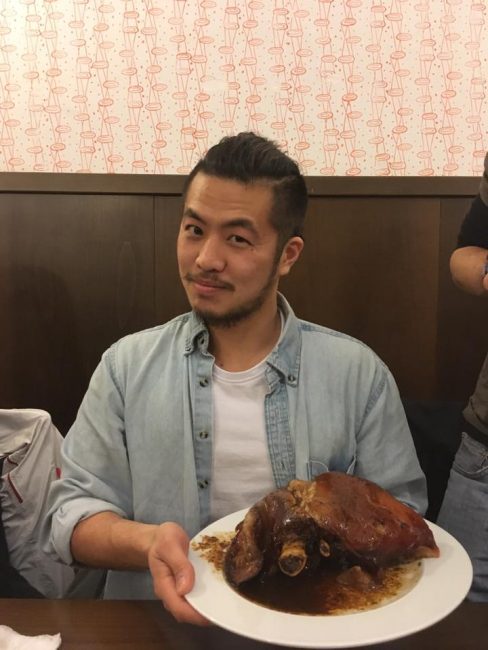




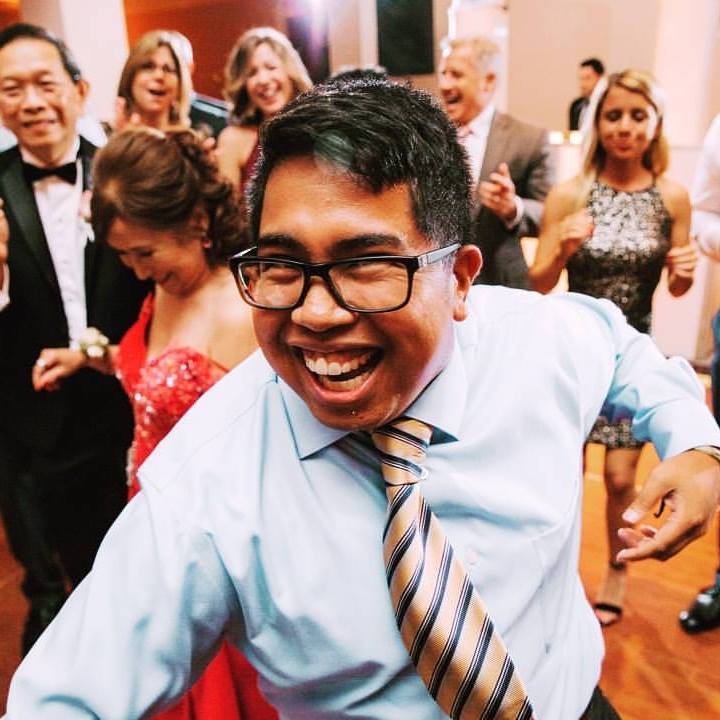


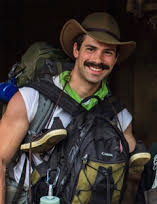 Chris Bellizzi is a photographer, filmmaker, and survival-based cocktail craftsman. A perpetual fan of road trips and window seats, he recently embarked on a nine-month journey across thirteen countries capturing an episodic documentary on candid cultural perception. Back now in the great state of New Jersey editing this project, Chris is looking forward to making new connections and finding new perspectives to keep the creative juices flowing.
Chris Bellizzi is a photographer, filmmaker, and survival-based cocktail craftsman. A perpetual fan of road trips and window seats, he recently embarked on a nine-month journey across thirteen countries capturing an episodic documentary on candid cultural perception. Back now in the great state of New Jersey editing this project, Chris is looking forward to making new connections and finding new perspectives to keep the creative juices flowing.






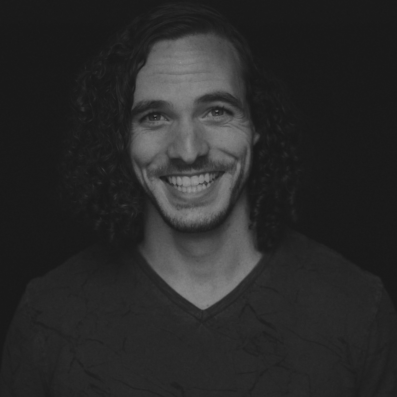









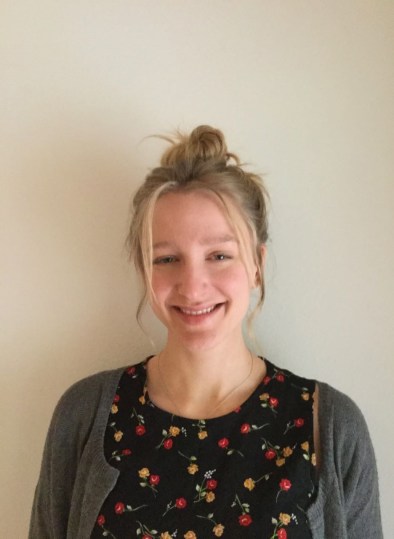




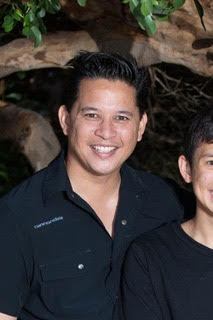






 Stephen is a South African / British Engineer, passionate about new ideas and innovations. He enjoys any kind of adventure sports and the outdoors. Since 2016, he has been pursuing the goal to bring empty houses back into use, thus, bringing life back to communities, as the
Stephen is a South African / British Engineer, passionate about new ideas and innovations. He enjoys any kind of adventure sports and the outdoors. Since 2016, he has been pursuing the goal to bring empty houses back into use, thus, bringing life back to communities, as the  Sean Pollock is a multi-disciplinary writer, director, designer, and artist. Recent credits include: American Juggalo (Porterspace Residency/Vital Joint/The New Ohio) A Very…Scientology Pageant: In Concert (The Green Room 42 & 54Below), Laundryfest, The Bed Show, Super Short Site Specific Festival, Phantom of the Paradise (Secret Loft), Intimate Bar Plays, #serials (The Flea), I’m Smiling Because I’m Uncomfortable (NYC and Touring. Winner: “Outstanding Site-Specific Performance” San Diego Fringe 2018). Off-Broadway: Trump Rally (United Solo/Theatre Row). He currently serves as the Literary Associate for The Dirty Blondes and is a company member of Unattended Baggage. Training: Ithaca College, NTI, Directors Lab North, Directors Lab Chicago, Directors Lab West.
Sean Pollock is a multi-disciplinary writer, director, designer, and artist. Recent credits include: American Juggalo (Porterspace Residency/Vital Joint/The New Ohio) A Very…Scientology Pageant: In Concert (The Green Room 42 & 54Below), Laundryfest, The Bed Show, Super Short Site Specific Festival, Phantom of the Paradise (Secret Loft), Intimate Bar Plays, #serials (The Flea), I’m Smiling Because I’m Uncomfortable (NYC and Touring. Winner: “Outstanding Site-Specific Performance” San Diego Fringe 2018). Off-Broadway: Trump Rally (United Solo/Theatre Row). He currently serves as the Literary Associate for The Dirty Blondes and is a company member of Unattended Baggage. Training: Ithaca College, NTI, Directors Lab North, Directors Lab Chicago, Directors Lab West. 





 “Hi. My name is Patrick Higgins and I am the founder and President of
“Hi. My name is Patrick Higgins and I am the founder and President of 






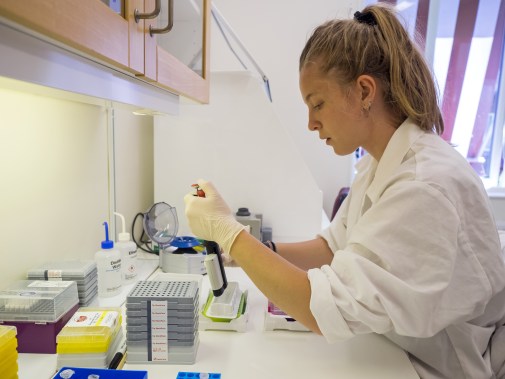
 Anonymous: For our post titled “Caracas in Crisis” we conducted an interview with a young woman who chose to remain anonymous. She is a student living through the political turmoil that has drastically altered everyday life for the people of Venezuela.
Anonymous: For our post titled “Caracas in Crisis” we conducted an interview with a young woman who chose to remain anonymous. She is a student living through the political turmoil that has drastically altered everyday life for the people of Venezuela. Arianna Soldati: is a Volcanologist and Science Communicator. Originally from Italy, she is currently based in Munich, Germany, but will happily go wherever her unusual career may bring her in the future. She only enjoys hiking “mountains” that have a crater on the top, and she will never tire to talk about them.
Arianna Soldati: is a Volcanologist and Science Communicator. Originally from Italy, she is currently based in Munich, Germany, but will happily go wherever her unusual career may bring her in the future. She only enjoys hiking “mountains” that have a crater on the top, and she will never tire to talk about them. Alexander Watson: As a forest investment expert and a manager of several sustainable reforestation projects in Latin America and South East Asia, Alexander has a broad experience in implementing and promoting international forestry projects. To his academic merit, he holds a Bachelor in Forestry from the Technical University of Dresden in Germany and a Postgraduate Certificate in Social Banking and Social Finance from the University of Plymouth in the United Kingdom.
Alexander Watson: As a forest investment expert and a manager of several sustainable reforestation projects in Latin America and South East Asia, Alexander has a broad experience in implementing and promoting international forestry projects. To his academic merit, he holds a Bachelor in Forestry from the Technical University of Dresden in Germany and a Postgraduate Certificate in Social Banking and Social Finance from the University of Plymouth in the United Kingdom. Morgan Randall: Morgan is an American data scientist working in a small town outside of Munich. He enjoys learning about the world through drawing the strangers around him with both his hands.
Morgan Randall: Morgan is an American data scientist working in a small town outside of Munich. He enjoys learning about the world through drawing the strangers around him with both his hands. Health Us Nepal:We are a small spanish NGO acting in Nepal. We provide health to Humla, the remotest and poorest region in Nepal. We can do that thanks to the heart of Marc, our doctor. He was adopted by a catalan family, and after he finished medicine studies, he decided to go back to his origins and start the project of his life.
Health Us Nepal:We are a small spanish NGO acting in Nepal. We provide health to Humla, the remotest and poorest region in Nepal. We can do that thanks to the heart of Marc, our doctor. He was adopted by a catalan family, and after he finished medicine studies, he decided to go back to his origins and start the project of his life. Mandy Ho:Mandy is from Germany, Hong Kong, and Vietnam. A Third Culture Kid, she is currently living in Amsterdam, the Netherlands, but who knows how long it'll be until her next adventure. When she's not raising awareness about gender equality, climate crisis, and mental health, she loves to get out of her comfort zone and experience new things such as aerial and bungee dance classes and volunteering at TedX and hopefully the UEFA Euro 2020
Mandy Ho:Mandy is from Germany, Hong Kong, and Vietnam. A Third Culture Kid, she is currently living in Amsterdam, the Netherlands, but who knows how long it'll be until her next adventure. When she's not raising awareness about gender equality, climate crisis, and mental health, she loves to get out of her comfort zone and experience new things such as aerial and bungee dance classes and volunteering at TedX and hopefully the UEFA Euro 2020 Smita and Earthoholics:I am fascinated by the wonders of nature and find myself on this journey exploring beautiful minds, interesting cities, cultures and people.
Smita and Earthoholics:I am fascinated by the wonders of nature and find myself on this journey exploring beautiful minds, interesting cities, cultures and people. WeBuilding is a Berlin-based non-profit organization founded by an international group of architects, united by a common purpose: to help deprived communities through sustainable building projects. We serve as the support for the local NGOs, helping them to further develop their own projects. With our architectural background, we believe we can provide valuable technical expertise so that both the construction and the design can be done as efficiently as possible.
WeBuilding is a Berlin-based non-profit organization founded by an international group of architects, united by a common purpose: to help deprived communities through sustainable building projects. We serve as the support for the local NGOs, helping them to further develop their own projects. With our architectural background, we believe we can provide valuable technical expertise so that both the construction and the design can be done as efficiently as possible. gaia-liNc is a german-based organization formed by Latin-American and European members committed with the sustainable development of Latin America’s communities and their territories.
gaia-liNc is a german-based organization formed by Latin-American and European members committed with the sustainable development of Latin America’s communities and their territories. Erin Skoczylas is an American photojournalist and communications specialist living in Berlin Germany. Since her start in photography in 2013, Erin has covered socio-environmental topics and issues in areas such as the Brazilian Pantanal, the Peruvian Amazon, and an immigration crisis in Central America. She is currently in her masters of International Relations and Cultural Diplomacy to explore the role of communications between stakeholders to encourage environmental policy. You can see more of her work at
Erin Skoczylas is an American photojournalist and communications specialist living in Berlin Germany. Since her start in photography in 2013, Erin has covered socio-environmental topics and issues in areas such as the Brazilian Pantanal, the Peruvian Amazon, and an immigration crisis in Central America. She is currently in her masters of International Relations and Cultural Diplomacy to explore the role of communications between stakeholders to encourage environmental policy. You can see more of her work at  Silicon Drinkabout is a free weekly event that brings people from the startup scene in Munich together. News, updates and events around Silicon Drinkabout Munich
Silicon Drinkabout is a free weekly event that brings people from the startup scene in Munich together. News, updates and events around Silicon Drinkabout Munich Eagle Rock School and Professional Development Center is a full-service not-for-profit educational reform organization. Eagle Rock operates a tuition-free, year-round residential high school in Estes Park, Colorado, and provides professional development services at school and community sites around the United States.
Eagle Rock School and Professional Development Center is a full-service not-for-profit educational reform organization. Eagle Rock operates a tuition-free, year-round residential high school in Estes Park, Colorado, and provides professional development services at school and community sites around the United States. Kartiki Gonsalves was born and raised in India, She documents our natural world to better understand the profound connection that we share with it by bringing awareness to the challenges we face, but also focuses on solutions with her projects and shows success stories where conservation is working. Her ultimate goal is to create a lifetime body of beautiful work that has deep meaning and that carries a message of hope for preserving what we have which will make a difference for the generations to come. She is currently working on a nature documentary in southern India on the bond between an orphaned baby elephant and his human caregivers. Kartiki is also deeply in love with Orcas and enjoys kayaking.
Kartiki Gonsalves was born and raised in India, She documents our natural world to better understand the profound connection that we share with it by bringing awareness to the challenges we face, but also focuses on solutions with her projects and shows success stories where conservation is working. Her ultimate goal is to create a lifetime body of beautiful work that has deep meaning and that carries a message of hope for preserving what we have which will make a difference for the generations to come. She is currently working on a nature documentary in southern India on the bond between an orphaned baby elephant and his human caregivers. Kartiki is also deeply in love with Orcas and enjoys kayaking.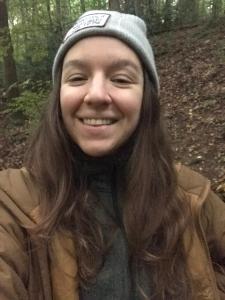 Melissa Angel is an environmental communicator working at the Global Landscapes Forum. She is also an avid banjo player and mom to a dog named Morby!
Melissa Angel is an environmental communicator working at the Global Landscapes Forum. She is also an avid banjo player and mom to a dog named Morby! Felipe Guarin is a creative executive living in Tokyo, Japan, with strong branding and marketing experience and a passion for technology, design and applied creativity complemented with a successful start-up experience. He studied Political Science at the Externado University in Bogotaì and later did a Masters in Marketing at the Pompeu Fabra in Barcelona and a Master in media design at Keio University in Tokyo. He is a Colombian experiential designer and entrepreneur who started working as a creative for BBDO. His experience at BBDO gave him enough confidence led him to start his design studio called Whatever Works. The studio has quickly become a hub for brands looking for a novel way to connect with their consumers. Some clients include Discovery Chanel, Jack Daniel’s, and Netflix. Felipe has been researching over the last 3 years the relation between games, sports, and technology he started in the field intuitively and ended co-founding Kinix a video game studio based in Japan that aims to dissolve the line between sports and e-sports.
Felipe Guarin is a creative executive living in Tokyo, Japan, with strong branding and marketing experience and a passion for technology, design and applied creativity complemented with a successful start-up experience. He studied Political Science at the Externado University in Bogotaì and later did a Masters in Marketing at the Pompeu Fabra in Barcelona and a Master in media design at Keio University in Tokyo. He is a Colombian experiential designer and entrepreneur who started working as a creative for BBDO. His experience at BBDO gave him enough confidence led him to start his design studio called Whatever Works. The studio has quickly become a hub for brands looking for a novel way to connect with their consumers. Some clients include Discovery Chanel, Jack Daniel’s, and Netflix. Felipe has been researching over the last 3 years the relation between games, sports, and technology he started in the field intuitively and ended co-founding Kinix a video game studio based in Japan that aims to dissolve the line between sports and e-sports. Lakshika Serasinhe is a cinematographer and director from Galway, Ireland.
Lakshika Serasinhe is a cinematographer and director from Galway, Ireland.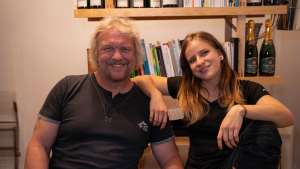 PowerPlay is an approach to fitness which incorporates a playful and experimental mindset. Fozzy (aka Prof. Dr. Eckehard Moritz) heads the innovation consultancy Innovationsmanufaktur in Munich and Raluca Muntean is a designer and acrobat also living in Munich. View the recent work from Powerplay here:
PowerPlay is an approach to fitness which incorporates a playful and experimental mindset. Fozzy (aka Prof. Dr. Eckehard Moritz) heads the innovation consultancy Innovationsmanufaktur in Munich and Raluca Muntean is a designer and acrobat also living in Munich. View the recent work from Powerplay here:  Petra is a Global Marketing professional and dance company founder based in Jersey City, NJ. She balances her love of Excel spreadsheets with her passion for contemporary choreography, all while cuddling her two cats, Basil & Poppy.
Petra is a Global Marketing professional and dance company founder based in Jersey City, NJ. She balances her love of Excel spreadsheets with her passion for contemporary choreography, all while cuddling her two cats, Basil & Poppy. Sara: “Hi everyone, I’m Sara and I am an American living in Germany. On my youtube channel,
Sara: “Hi everyone, I’m Sara and I am an American living in Germany. On my youtube channel,  Poonam is born, raised, and educated in New Jersey, and she currently lives and works in Brooklyn. She is a curriculum development manager at a leading edtech company; outside of her corporate 9am-5pm, Poonam runs a very small business that sells authentic masala chai kits inspired by her mum’s top secret recipe. Check out @
Poonam is born, raised, and educated in New Jersey, and she currently lives and works in Brooklyn. She is a curriculum development manager at a leading edtech company; outside of her corporate 9am-5pm, Poonam runs a very small business that sells authentic masala chai kits inspired by her mum’s top secret recipe. Check out @ Trevor May is a cinematographer and filmmaker from Atlanta, GA. His focus is primarily on documentary storytelling but has worked in narrative, commerical and music videos as well.
Trevor May is a cinematographer and filmmaker from Atlanta, GA. His focus is primarily on documentary storytelling but has worked in narrative, commerical and music videos as well.